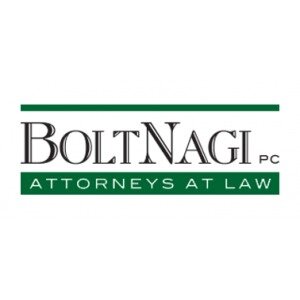Best Acquisition / Leveraged Finance Lawyers in British Virgin Islands
Share your needs with us, get contacted by law firms.
Free. Takes 2 min.
Or refine your search by selecting a city:
List of the best lawyers in British Virgin Islands
About Acquisition / Leveraged Finance Law in British Virgin Islands
Acquisition and leveraged finance involve providing financial structures to facilitate the purchase of companies or assets, often where borrowing plays a central role. In the British Virgin Islands (BVI), these transactions are frequent due to the jurisdiction's popularity as an international financial center and its business-friendly environment. Many cross-border deals are structured using BVI companies, and as such, acquisition and leveraged finance have become core practices for local and international law firms operating in the territory.
BVI laws are designed to offer flexibility and certainty to lenders, borrowers, and investors. The use of BVI business companies as acquisition vehicles is common in mergers, acquisitions, management buyouts, and other corporate transactions. The jurisdiction is especially known for its robust security registration systems and creditor-friendly insolvency laws, making it an attractive place for structuring leveraged finance transactions.
Why You May Need a Lawyer
Acquisition and leveraged finance transactions can be complex, involving significant legal, tax, and regulatory considerations. Seeking legal advice is crucial in several situations, including:
- If you are an investor or a private equity firm planning to use a BVI company for an acquisition or buyout
- If you are a lender (such as a bank or credit fund) providing finance secured against BVI assets or shares in a BVI company
- If you are a borrower seeking guidance on your legal obligations and the impact of BVI law on your financing arrangements
- If you are considering enforcing security interests over shares or assets of a BVI company in a default scenario
- If you have concerns about cross-border regulatory compliance or anti-money laundering aspects
- If you are structuring a complex transaction that includes BVI elements or requires a multi-jurisdictional approach
- If you need assistance with documentation, due diligence, and security registration in accordance with BVI law
In such cases, a local lawyer with expertise in acquisition and leveraged finance can ensure that your interests are protected, risks are minimized, and the transaction proceeds smoothly and in compliance with all applicable laws.
Local Laws Overview
The British Virgin Islands legal framework for acquisition and leveraged finance is primarily governed by:
- BVI Business Companies Act, 2004 (as amended) - This is the key piece of legislation for the incorporation and operation of BVI companies. It outlines provisions related to share transfers, security interests, and company management.
- Security Interests (Registration and Filing) Act, 2021 - This statute provides for the registration of security interests over specific assets, shares, and other property in or of a BVI company. This fosters legal certainty for lenders.
- Insolvency Act, 2003 - The Insolvency Act sets out creditor rights, priority rules, and procedures for enforcement in the event that a borrower defaults.
- Other relevant statutes include anti-money laundering regulations and confidentiality laws.
BVI law supports a range of financing options, including share security, asset security, and hybrid structures. There are no foreign exchange controls, and there is a well-established system for recognizing and registering charges against BVI companies. Importantly, BVI courts generally respect and enforce contractual freedom, security agreements, and creditor rights, which are crucial for acquisition and leveraged finance.
Frequently Asked Questions
What is leveraged finance in the context of the BVI?
Leveraged finance refers to the use of borrowed funds to increase the potential return of an acquisition or investment, typically secured against company assets or shares in a BVI company. This is often used in private equity, buyouts, or mergers and acquisitions.
Why are BVI companies commonly used in acquisition finance?
BVI companies offer minimal corporate formalities, strong asset protection, tax neutrality, flexibility in share structures, and a creditor-friendly legal regime, making them attractive as acquisition vehicles in international transactions.
Do security interests over BVI companies need to be registered?
While security interests do not have to be registered by law, registration is highly recommended. Registering charges gives priority over subsequent security interests and puts third parties on notice of the lender’s rights.
Are there restrictions on foreign lenders offering finance to or through BVI companies?
There are generally no restrictions on foreign lenders. BVI law is open to international finance transactions and does not impose exchange controls or withholding taxes on interest payments.
What happens if a borrower defaults on a leveraged finance deal involving a BVI company?
In the event of default, security holders can enforce their rights through insolvency proceedings or by realizing secured assets, subject to the terms of the security documents and local laws.
How do BVI courts view foreign law-governed finance documents?
BVI courts generally recognize and give effect to contracts governed by foreign law, provided they are not contrary to BVI public policy or any mandatory BVI law.
Is stamp duty or tax payable on security documents in the BVI?
In most cases, there is no stamp duty or tax imposed on security documents if the underlying assets are not located in the BVI, which enhances the cost-efficiency of using BVI structures.
What due diligence is required for acquisition finance in the BVI?
Typical due diligence includes corporate searches, review of the company’s constitutional documents, verification of existing security interests, and ensuring compliance with anti-money laundering requirements.
Can minority shareholders block an acquisition financed with leverage?
Minority shareholder rights in the BVI are limited. BVI law prioritizes the will of the majority, provided procedures are followed and transactions are bona fide and for proper purposes.
How long does it take to incorporate a BVI company for acquisition purposes?
Incorporation is typically very quick, often completed within one to five business days, especially when handled by a registered agent familiar with acquisition finance transactions.
Additional Resources
For more information or support relating to acquisition and leveraged finance in the British Virgin Islands, you may consider the following resources:
- BVI Financial Services Commission - Regulator for company formation and security registration
- BVI Bar Association - List of qualified legal practitioners in the territory
- International Association of Restructuring, Insolvency & Bankruptcy Professionals - Resources on creditor rights and insolvency regimes
- Local law firms specializing in finance, mergers and acquisitions, and company law
Next Steps
If you are planning an acquisition, leveraged buyout, or any financing transaction involving a BVI company, the next steps should include:
- Consulting a local BVI legal expert with experience in acquisition and leveraged finance
- Identifying and assembling required documentation, including company records and financial statements
- Discussing transaction structures to ensure legal, regulatory, and tax compliance
- Arranging for the drafting and review of all finance and security documentation by a qualified lawyer
- Undertaking due diligence and, where necessary, registering security interests with the BVI authorities
Engaging legal counsel early in the process provides strategic guidance, helps avoid costly mistakes, and ensures your transaction proceeds in accordance with BVI law and best practices.
Lawzana helps you find the best lawyers and law firms in British Virgin Islands through a curated and pre-screened list of qualified legal professionals. Our platform offers rankings and detailed profiles of attorneys and law firms, allowing you to compare based on practice areas, including Acquisition / Leveraged Finance, experience, and client feedback.
Each profile includes a description of the firm's areas of practice, client reviews, team members and partners, year of establishment, spoken languages, office locations, contact information, social media presence, and any published articles or resources. Most firms on our platform speak English and are experienced in both local and international legal matters.
Get a quote from top-rated law firms in British Virgin Islands — quickly, securely, and without unnecessary hassle.
Disclaimer:
The information provided on this page is for general informational purposes only and does not constitute legal advice. While we strive to ensure the accuracy and relevance of the content, legal information may change over time, and interpretations of the law can vary. You should always consult with a qualified legal professional for advice specific to your situation.
We disclaim all liability for actions taken or not taken based on the content of this page. If you believe any information is incorrect or outdated, please contact us, and we will review and update it where appropriate.
Browse acquisition / leveraged finance law firms by city in British Virgin Islands
Refine your search by selecting a city.














